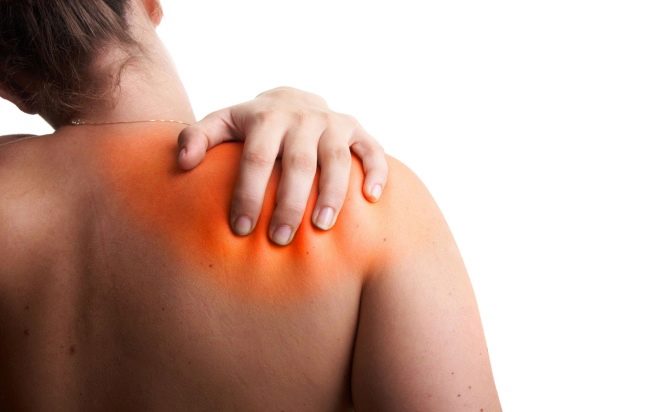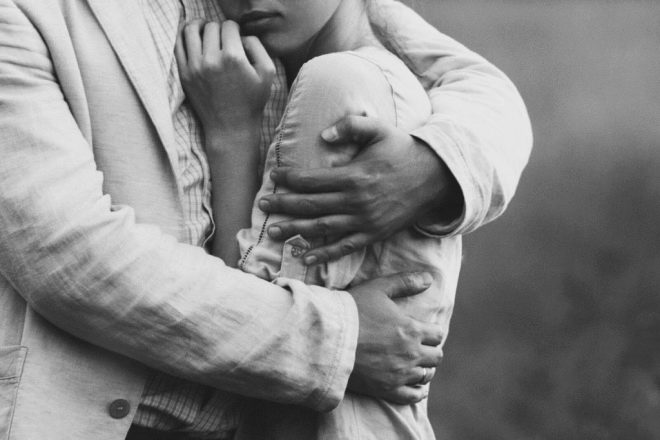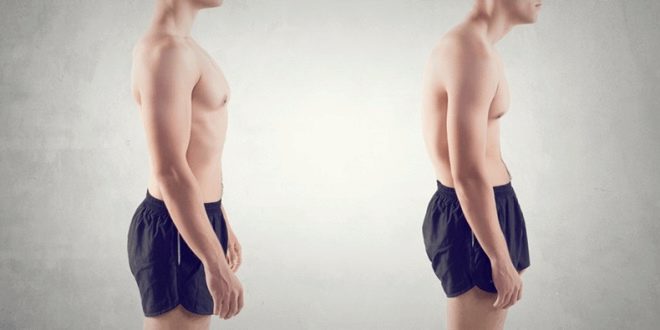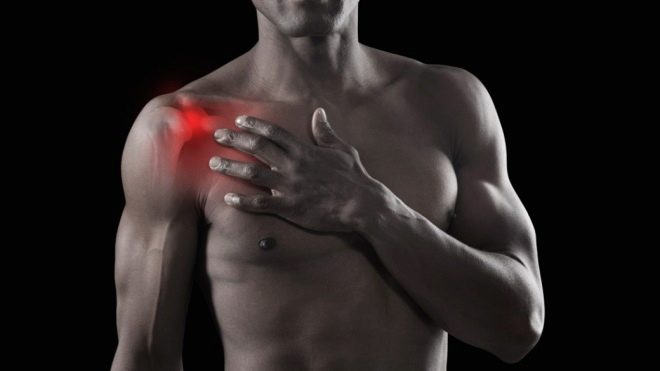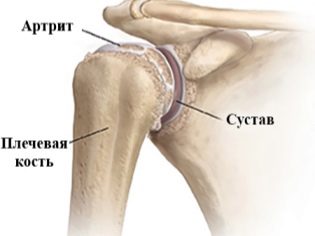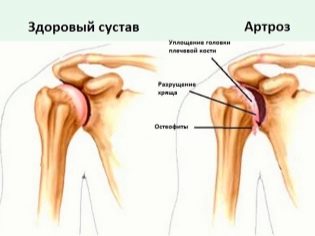Psychosomatics of shoulder pain
The shoulders give a person the opportunity to be free in his actions: to set the arms in motion, the upper part of the chest. There is nothing surprising in the fact that injuries and diseases of the shoulder can permanently disrupt the usual course of life of an adult or a child. But not always pain and stiffness, limited movement are associated with a particular disease. And then they talk about psychosomatic pain. In this article, we consider the psychosomatic diseases of the shoulder girdle.
General information
The shoulder is a movable segment of the arm that attaches the limb to the body through a complex shoulder joint. Speaking of the shoulder, the physician imagines not only the joint itself, but also two muscle groups, the anterior and posterior, which provide the joint with mobility. Also in the shoulder are many deep blood vessels and nerve endings, including the radial, median nerves.
The most common shoulder injuries. They can happen at any age. When injuries are often damaged nerves, blood vessels, ligaments, bone tissue. The common diseases are neuralgia, arthritis and arthrosis, instability of the shoulder joint.
Problems with the shoulders are manifested by pain, a crunch in the joint, limited movement (a person cannot raise his arm, bend it, grab and hold the object), pain can spread along the nerve to the neck, back, hand.
They speak of psychosomatic shoulder pain when there is no apparent reason for it: there was no injury, no prerequisites for arthritis or arthrosis. It was just that at some point pain appeared, which intensifies or subsides in a certain sequence, depending on the psychological state, the level of stress; under certain events and situations in which a person finds himself.
Psychosomatic causes
Psychosomatics studies the relationship between the mental state of a person and his behavior and illness. It is believed that excessive and prolonged accumulation of negative emotions causes muscle tension on the physical level, including small deep muscles. Blood circulation in the area of spasm is disturbed, pain syndrome develops with various accompanying symptoms. Psychosomatic medicine builds its findings on the observation of psychotherapists and psychoanalysts who are looking for specific causes of diseases and is psychological portraits of patients with one or other ailments.
From the point of view of psychosomatics, the shoulders symbolize the energy of action and creation. Remember the titans who hold the world on broad and strong shoulders; remember, with what broad shoulders the worker and kolkhoz woman were depicted on agitational posters of the USSR. Wide, strong and healthy shoulders are a sign of a person’s activity, his activity, his satisfaction with his own work.
The health condition of the shoulders is a vivid indicator of how much a person copes with the responsibilities assumed, whether he is satisfied with his work, or whether he depends on the opinions of other people.
Also shoulders symbolize in psychosomatics the readiness to accept love - to be embraced. People who are afraid of accepting feelings, hide from the world, avoid close relationships of trust, usually have thin and weak shoulders.
Thus, a person who is pleased with himself and with his activity has free, healthy shoulders. The one who is forced to bear an unbearable burden, not wanting to get rid of him, the one who is forced to do not what he likes, not ready to accept love; who considers himself unworthy of something or someone, almost always has certain problems with the condition of the shoulder joints, muscles, nerves, blood vessels.
Psychotherapists drew attention to the fact that straightened free and healthy shoulders almost always distinguish people who do not have problems with the discrepancy of desires and possibilities. They have desires, know the ways and means of their realization; they manage to achieve what they want, and if not, they don’t worry much, because they immediately find other desires and build new plans for their achievement.
People with shoulder problems, joint stiffness, impaired mobility, stoop with the shoulders brought forward, usually suffer from weights. It seems that it can easily be seen on their shoulders: it is a huge burden of guilt, disappointment, anger and resentment that a person experiences because he has a discrepancy between the world of dreams and the possibility of the realization of desires.
The clamp in the shoulders, the tension, the pain say that a person has forgotten about himself and his needs, he is dragging his load in favor of society, relatives, relatives, colleagues, parents. He is so afraid of not coping with the assignment, he is so worried that he will be unloved if he is unable to finish the job and is forced to shoulder more and more of his shoulders. When pain occurs, it is an unequivocal signal that the load has become too burdensome. If you do not reduce it, problems begin with the spine, the thyroid gland.
The impaired functioning of the muscle frame of the shoulder girdle suggests that a person does not follow his own purpose - he is forced to do not what he wants, but what he needs. He is dissatisfied with his work, his studies, his hobbies imposed by his parents or friends. He scolds himself for it, and he is ashamed of himself. Shoulders are in tension, which sooner or later leads to problems with the muscles.
Watch colleagues and acquaintances - for sure you will be able to find among them a person with high shoulders and an almost motionless neck. He even turns slightly body, if you call him from the side. Such people suffer from a multitude of questions to which they themselves do not find the answer - first of all, they are not very clear who they are and what they are doing here. Typically, these people do not like their work, go to it, as if to hard labor.
From the point of view of psychosomatics, the left shoulder symbolizes the existence of problems in the personal sphere: a person does not like himself, he does not live with the people with whom he would like to spend his life. The right shoulder is a symbol of society, peace, professional activity, work, and self-expression in the profession.
Injured shoulders as a warning. Trauma is a signal that a person urgently, urgently needs to reconsider his attitude to work, workload, to the duties that he took. If you do not get rid of some of them right now, the devastating effects may be more significant for the body.
Selected diseases
The violation of posture associated with existing scoliosis, accompanied by the omission of the shoulders, pushing them forward, indicates a discrepancy in self-esteem and the requirements of the world. A person feels that he cannot meet someone's expectations and requirements. Often this form of scoliosis or a violation of posture occurs in childhood, when a child is raised authoritatively, demanding.
Arthritis with an inflammatory process in the shoulder joint indicates the presence of anger that a person is trying to hide. Instead of directing him to what he does not want to do, he directs him towards himself, because he does not have enough strength to give up coercion.
Osteoarthritis develops in those who habitually pulls the strap responsibly for themselves and for "that guy."At the same time, he doesn’t see any other meaning in his own existence - it is even comfortable for him to do all the housework all day, to take care of everyone, to make everyone happy, to help someone.
Also, the shoulder joints begin to collapse in people who make too many promises (this is also a responsibility).
If the shoulder is broken, it is not even a signal (like stretching or dislocation), but a planned outcome of a long tense situation. It is terrible that those who are already desperate to fight, who do not believe that he will be able to live freely, are breaking their shoulders.
Pain in the shoulders, any problems with them - a sign that a person needs to take time (do not do anything yet) and think well: what creative impulses does he have in himself? Maybe he needs to draw, and he has to work in the factory from morning till night? Especially this question should be asked to parents of children who have sore shoulders: did they give the child to that school or section, do they not force him to do what he does not want?
Next, you need to learn every time before making a decision to honestly answer yourself a simple question: “Do I need it?”. If you personally do not need, then you should not take the case. Let it make those who need it.
For psychosomatic pains of the neck, shoulders and spine, see the following video.


